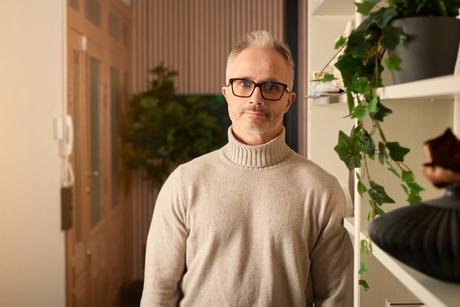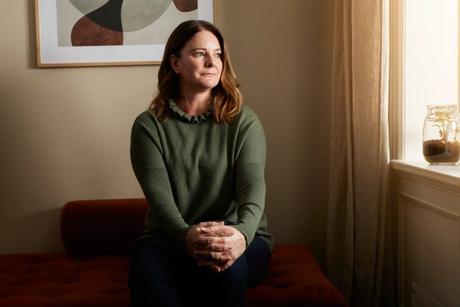What is anxiety?
Symptoms of anxiety are one of the most common mental illnesses people come to treatment for. Many people will experience periods of anxiety during their lifetime.
But what exactly is anxiety, and how is anxiety treated?
Do you want help with treatment of
anxiety? Download the app to book an appointment
Typical symptoms of anxiety
To best understand the symptoms of anxiety, imagine how you would feel before giving a speech, presenting yourself at a job interview, or going on a first date.
The symptoms of anxiety are very similar, but when we talk about anxiety they are usually stronger and more pervasive. Psychological symptoms of anxiety include worry, stress, rapid or incomplete thoughts.
Physical symptoms include physical discomfort, pressure in the chest or abdomen, restlessness, nervousness, nausea, tinnitus and blurred vision. Behavioral symptoms of anxiety often include avoiding what causes anxiety, and seeking reassurance in others.
When does anxiety become problematic?
Everyone has anxiety at times and that is perfectly normal. Often, anxiety does not need treatment by a professional. We can say that anxiety only starts to need treatment when it prevents you from living the way you want, prevents you from doing things you really think you should be able to do, or if you spend a lot of your time trying to avoid the anxiety or situations that provoke it. In short: if you feel that anxiety has begun to take control of your life, you may want to seek help.
Types of anxiety

Social anxiety
Social anxiety is about a pervasive fear of rejection or criticism, which means that one avoids social situations as best one can. The times when you are unable to avoid the social, it is common to feel classic anxiety symptoms together with thoughts that you are being judged, are less valuable than others or that you do not master the situation in other ways.

Panic anxiety
Panic anxiety is a more extreme but also short-term form of anxiety where it is common to feel strong physical discomfort and restlessness - to be confused quite like a heart attack. It is also not uncommon to think that you may go crazy or die the first time you experience it. Usually the avoidance behavior afterwards - that is, that you do everything you can to avoid new seizures - is a bigger problem than the anxiety attacks themselves.
Treatment of anxiety
Fortunately, there is good treatment for anxiety. We usually start with an initial survey of how anxiety affects you and your life, so that we can understand you and your anxiety.
After the mapping, it is common to start the treatment with some form of exposure - where we expose you to the anxiety under controlled limits that you are involved in determining.
Treatment for anxiety can sometimes also involve an exploration of
underlying emotions or past experiences that may be contributing to the anxiety. In any case, it will always be a collaboration between you and the psychologist that makes the treatment adapted to you and your needs.
The most important outcome of treatment will always be that you can live life that way you want it, without being hindered by anxiety.
How do I proceed?

Book an appointment
Book an appointment with one of our psychologists or psychiatrists.

Carry out the consultation
You conduct your consultation either via video or in our clinic. Read more about how to proceed here.

Follow-up
There is no final decision on how long a course of therapy lasts, some need hours over a long period, while others need few.
Get to know our therapists 🌻
We know how important it is with the right chemistry to get a the most out of a therapy session. We've talked to our therapists so you can get to know them better. We hope this makes it easier to find a psychologist who is right for you
Get to know our therapists

